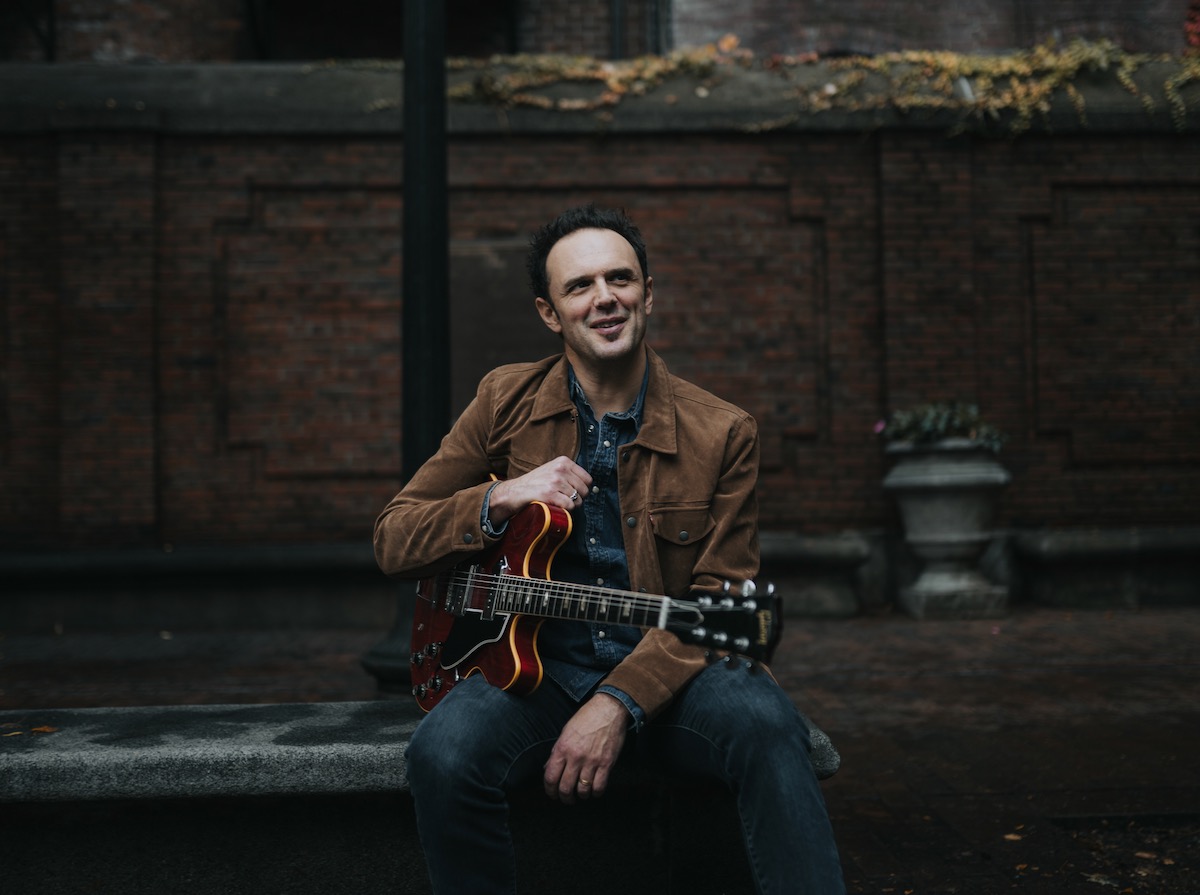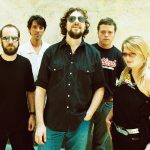Mark Erelli on Putting Real Love into Love Songs

Photo by Joe Navas
On the title track to his new EP, Jackpot, out this Friday, Mark Erelli ’fesses up to forgetting his wallet on a first date.
It’s just one snapshot (and a real-life one) on the three-song EP that aims to show a larger picture of love — the ups, downs, and in-betweens that signify the real thing — just in time for Valentine’s Day.
“That’s one of the things about love songs, is that for them to be relatable to other people, for other people to see themselves and their stories in your songs and your stories, you do have to share those kinds of embarrassing details,” he says. “There’s very few Hallmark, perfect romcom kind of stories that go off without a hitch. There’s always some kind of weird twist.”
We asked the Massachusetts singer-songwriter about the challenges of writing love songs and making them ring true. It’s something he’s been managing to do on albums and live performances for more than 20 years now — coinciding closely with the amount of time he’s been married to Polly, who evidently forgot that first-date gaffe, or at least forgave. And that’s love, truly.
(The conversation has been edited for length and clarity.)
What’s the trick to writing love songs?
You’re writing about something that is in some ways very personal to you and having it be relatable to people in a way — how do you invite other people to relate to what are very specific aspects of your story? Conversely, and this is true of most songs, those little details that seem so personal and so kind of idiosyncratic, they have this effect of fleshing out an artist or a singer as a more relatable human being.
But you have to know what to leave out too; you can’t give everybody everything. You want to have something for yourself. It’s like that saying, “never let the truth get in the way of a good story,” that sentiment is on full display and love songs. You’ve got to try and make them relatable and specific enough that people connect, but you don’t want to give away the entire thing.
And then the other part that I find challenging about love songs is that love, it changes. I’ve been with the same person now for 23 years. So that’s obviously a long-term thing. And you think, like, “Oh, it’s the same, he’s been in the same relationship,” but I haven’t been in the same relationship. That relationship has changed. Obviously there’s a bed of trust and respect, but there’s a whole arc there. And, it’s hard to put all of that in a song. I try to find those kinds of bite-sized little vignettes and just explore that scene. So that you’re not trying to put this infinite thing in a three-minute catchy song.
Which do you like better, to write or to listen to: happy love songs or heartbreak love songs?
I like writing positive love songs a lot, because I feel like that is maybe a comparatively rarer kind of story, especially that mature or married love. There’s more of it now that the Baby Boomer generation is still around and still writing and still touring. But for a long time, the love songs were either bubblegum or the woe-is-me kind of things. So I like that Bruce Springsteen kind of “How do we write about our adult lives and continue to make compelling songs out of that material and that stage of your life,” because you’re not always going to be 21 and out on the trestles in your Thunderbird racing in the streets. You’ve got to find a way to still explore the human condition. So I think I’m most proud of those kinds of positive love songs that highlight the work that you have to put into a relationship. That’s not a sexy, flashy part of love, but it is definitely a part of it if it’s going to last.
Do you ever have to take some personal precautions when writing a love song? Do you have to tell Polly “This is about you,” or “This one isn’t real or current, I promise!”?
Oh yeah, absolutely. I mean, a “Stranger’s Eyes” from Blindsided [key lyric: “I’m worried about our prognosis / you don’t even notice we’re barely holding on”], that was one that was like, if I put this out there, are people gonna assume the worst? Are they going to take that moment in time and assume that that is the whole story? None of us are always attentive and our best selves, we all have those moments where we just get lost in other things and a number of reasons you’re not living up to what the other person needs. If you write a song at that point, the benefit is it’s very humanizing and therefore something that other people can really see themselves in. But it also is like, “Oh, well, if they can see themselves in the song, that means they’re gonna see me in the song.” I have decided to have a certain aspect of myself in the public eye and share that with people. But my wife didn’t make that decision. So I do have to every once in a while say, “This one’s a little raw.” But “Stranger’s Eyes” is her favorite song of mine. So it’s usually okay.
But, you know, in “Jackpot,” that line about forgetting my wallet … she hasn’t said this yet, but I think she might be a little bit bummed that people might be on my side on that one. [Laughs.] “He’s a bumbling guy that forgot his wallet. Isn’t that cute?” She’s like, “No, it’s not. It’s ridiculous. And he’s still forgetting his wallet!”
What do you normally do for Valentine’s Day, and what are you doing this year?
Normally it would be some kind of childless dinner. That’s not happening this year. I don’t know what we’re doing. The kids need the stuff that you normally mark time with — the holidays, the rituals, that kind of thing. And so I try and get behind stuff like that for their sake. But for me, this whole time, I’ve just been kind of like, “Can we just not even pretend that this is normal or good?” I don’t want to celebrate things — I don’t really mean it, but I think it’s just like an expression of just how exhausting it has been to kind of figure out how to be. It’s been a little bit exhausting to figure out, “Well, let’s come up with a new tradition.” But it’s getting a little bit easier to do that kind of thing. I’m kind of starting to think about, “Okay, how can we make that fun?” We don’t have any specific plans yet, and we’re not really at the point where we would go out and eat in a restaurant. So I think there’ll just be some kind of takeout involved.




